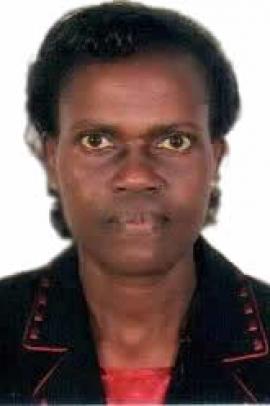Overview
In recent times, agricultural production systems have become increasingly more intensive and susceptible to adverse effects of climatic variability and changes in local, regional and global markets. In addition, the local, regional and global food situation is grim due to increased demand and the increasing use of staple food crops as alternative energy sources. There is, therefore, need for graduates who can effectively generate and promote technologies, strategies and services that enhance agricultural productivity and quality while preserving the environment as envisaged in Kenya’s vision 2030 and the Agricultural Sector Development Strategy. The Bachelor of Science in Agriculture programme is a rigorous and broad-based curriculum designed to produce graduates who through extension, teaching, research, or consultancy will provide technical services in agribusiness, agricultural policy formulation, animal production, crop and land management, and environmental protection.
Structure
The course shall be offered under two modules; full time and through Open, Distance and e-learning (ODeL).
Full time modules
- A candidate shall take a minimum of four academic years and a maximum of 8 academic years to complete the course
- Each academic year shall consist of two semesters except during the third year of study which will have a third semester
- Each semester shall consist of 15 teaching weeks inclusive of teaching and examinations, while the third semester shall be eight weeks
- A candidate for B.Sc. Agriculture shall participate and complete course work and practical assignments that may be applicable to the programme. Admission to the examination at the end of the semester shall be based on satisfactory completion of such requirements.
- Each candidate shall be required to undertake field practice (attachment) after completion of the second semester of the third year of study. During the field attachment, students are expected to embark on a research project, which they have to complete and present at a seminar during the fourth year of study.
- In the third and fourth years of study, each student will be required to take courses in any of the following five majors: Agricultural Economics, Animal Science, Crop Protection, Crop Science or Land Resource Management
- Majors shall be taken after completion of the second year level courses.
Open, distance and e-learning
The course structure and requirements for the Bachelor of Science in Agriculture offered by open, distance and e-learning mode (ODeL) remain the same as under the full time format. However, the model of delivery will involve:
- Use of various media and largely home based
- Other modes of delivery:
Written self instructional study modules at the registration time including study books, relevant literature, interactive devices and self tests
Mediated technical learning materials; audio cassettes, e-learning materials and video clips
Limited face-to-face sessions to provide overview of the course at commencement of semester, mid semester and revision period before examinations.
Provision of learner support services
Support study centers at the University of Nairobi
Access to information through computers at the University of Nairobi
Use of libraries at the University of Nairobi and related research institutions.
Orientation (immediately after registration):
Orientation in ODeL delivery
Study, reading and computer skills
Time management and techniques in handling assignments
Mentorship, guidance and counseling
Emphasis in ODeL is use of satellite centers that serve as a link between the university and the students in the following: registration, collecting reading materials, collecting results and programmes, examination information, posting timetable and holding meetings.
Admission Requirements
3.1 The common regulations for the Bachelor of Science degrees in the Faculty of Agriculture, University of Nairobi, shall apply. In addition, the applicants with the following minimum qualifications shall be admissible:
Holders of Kenya Certificate of Secondary Education (KCSE) with mean grade of C+ or equivalent with passes at C plain or above in Biology or Biological Sciences and any one of the following subjects: Chemistry, Physics, Physical Sciences, Mathematics, Agriculture or Geography
- Holders of KCSE mean Grade of C- or equivalent plus a Certificate and Diploma in a relevant field from an institution recognized by the Senate.
- Holders of ‘O’ level Division II or equivalent with subjects indicated in 3.1.1 above; plus a Diploma in a relevant field from an institution recognized by the Senate
- Holders of ‘A’ level with two Principal Passes or equivalent in Biology and any one of the following subjects: Chemistry, Physics, Geography or Mathematics
- Holders of KCSE mean Grade of C plain or equivalent plus a Diploma in Biological Sciences or related sciences from an institution recognized by the senate
- Holders of a higher national Diploma in Biological Sciences or related sciences from an institution recognized by the Senate.
- Holders of a Bachelor of Science degree in Biological Sciences or related sciences from an institution recognized by the senate
- Equivalent qualifications to the above from institutions recognized by the Senate












